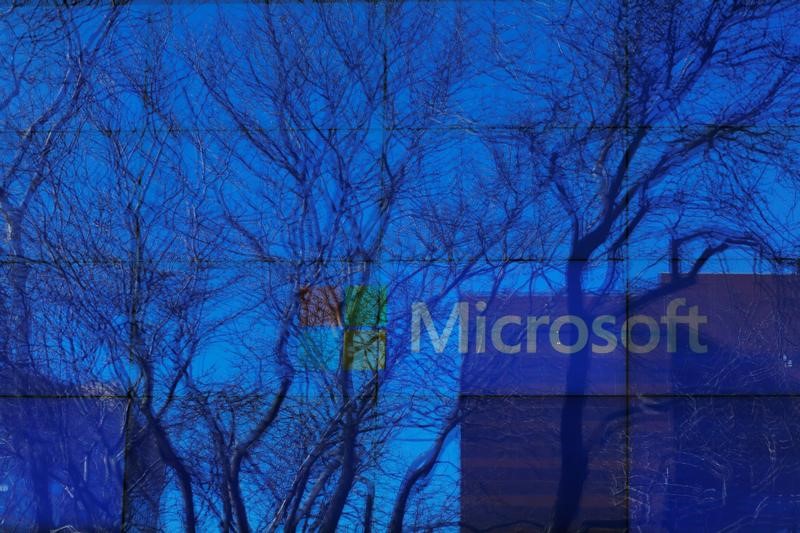This post was originally published on this site
https://i-invdn-com.investing.com/trkd-images/LYNXMPEJ3P0WC_L.jpg
LONDON (Reuters) – For all the thunder about Xbox versus PlayStation, it was the nascent cloud market that led to Britain’s surprise decision to block Microsoft (NASDAQ:MSFT)’s record Activision Blizzard (NASDAQ:ATVI) takeover.
Microsoft has been working for months to satisfy concerns about the $69 billion deal raised by Britain’s Competition and Markets Authority (CMA), which has been increasing proactive in taking on “Big Tech” since Brexit.
The ruling – which the U.S. company has vowed to appeal – sets a precedent for the European Commission – due to issue its own verdict next month, and the U.S Federal trade Commission.
Microsoft offered Sony (NYSE:SONY) a 10-year guarantee that new versions of “Call of Duty” – one of the most valuable franchises in gaming – would be available on PlayStation at the same time as on Xbox. Nintendo secured a similar deal.
That only answered the CMA’s console concerns, leaving cloud gaming as the only remaining – and apparently lower – hurdle.
Defining cloud gaming is not simple.
Platform types and business models are still evolving, and several ‘gaming as a platform’ services have struggled to succeed, such as Google (NASDAQ:GOOGL) Stadia, according to a submission to the CMA’s inquiry by UCL School of Management’s Joost Rietveld.
TRANSIENT TECHNOLOGY?
Activision has not made its titles available on cloud services, calling them a “transient technology”, while Microsoft, which offers the Xbox Game Pass service, has said cloud gaming is “no more than a feature”.
The CMA disagreed, saying that cloud was the most rapidly growing sector in gaming, while consoles were a mature market.
It said Microsoft already accounted for 60-70% of global cloud gaming services and had other trump cards: Xbox, the leading PC operating system Windows and cloud provider Azure.
Microsoft agreed to offer some Activision games on a number of cloud platforms, including Nvidia (NASDAQ:NVDA), Boosteroid and Ubitus.
But the CMA said Microsoft’s remedies omitted rival subscription models – like a Netflix (NASDAQ:NFLX) for games – or providers not using Windows on PCs.
“(Microsoft’s) proposals were not effective to remedy our concerns and would have replaced competition with ineffective regulation in a new and dynamic market,” it said.
Quilter Cheviot equity research analyst Ben Barringer said: “Ever since Brexit, the UK regulator has taken an actively harsh stance when it comes to anti-competitive behaviour.
“This stance is ultimately what has led to its decision to put a halt to the purchase, as it concluded that Microsoft already has a dominant position and ‘cloud gaming needs a free, competitive market to drive innovation and choice’.”


